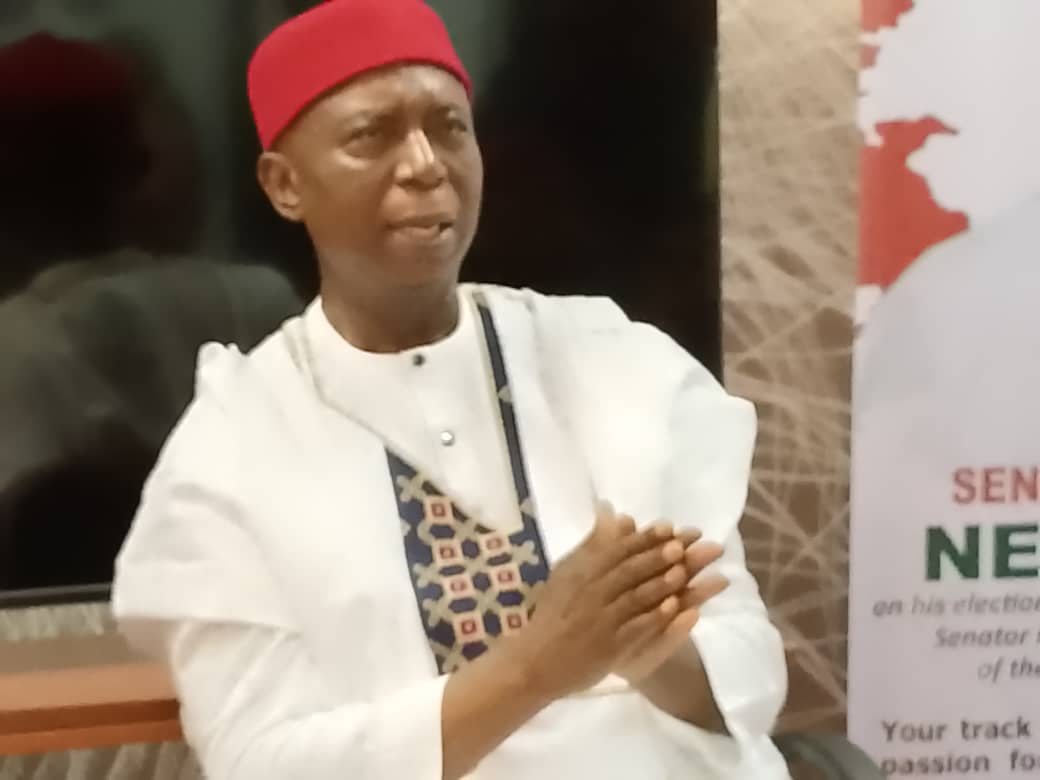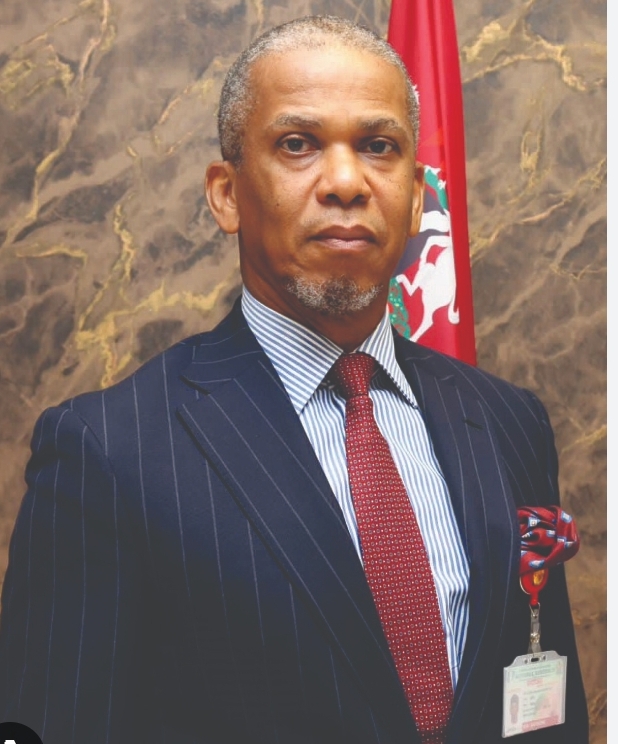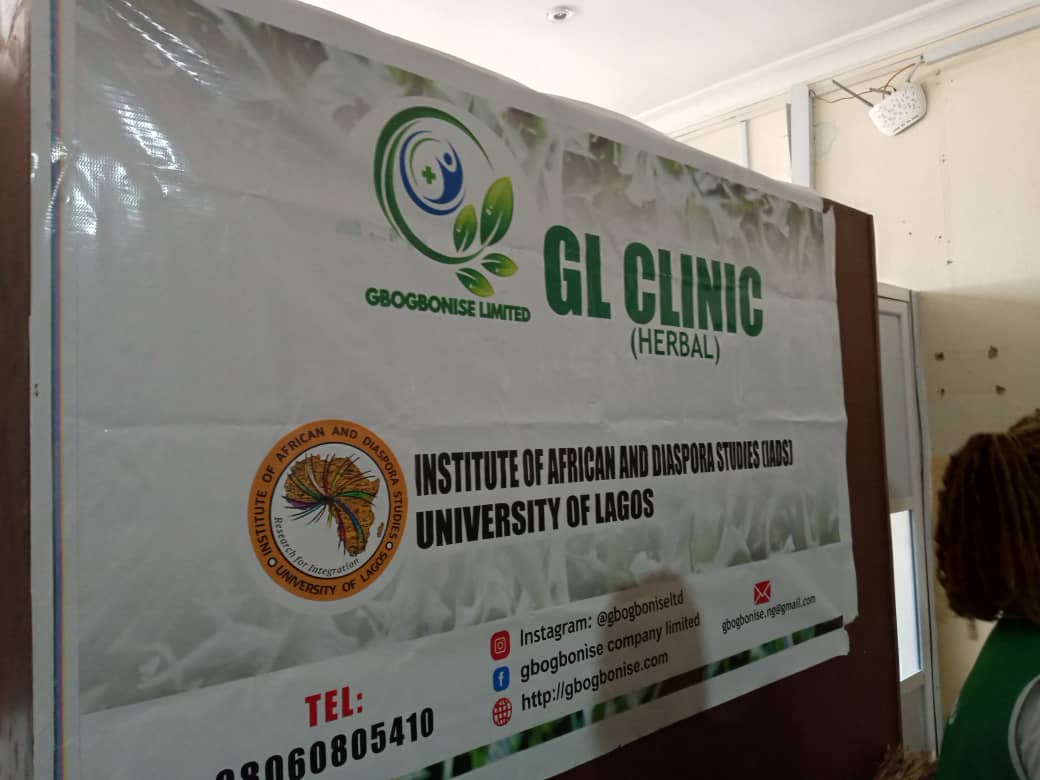
The University of Lagos’ Institute of African and Diaspora Studies (IADS) reaffirmed its commitment to advancing human capital development and global advocacy during its maiden Open Day event on Wednesday, in Lagos.
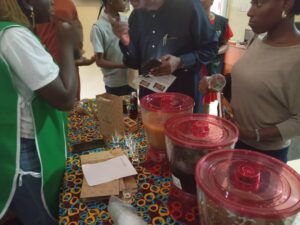
Established in 2017, IADS was created with a threefold mission: to drive cutting-edge research, deliver world-class teaching, and promote advocacy related to Africa and its diasporas.
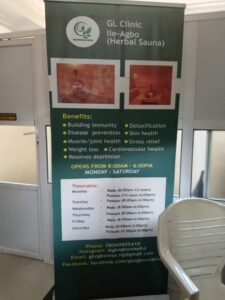
At the 2025 Open Day, held to showcase the institute’s achievements over the past seven years, Director of IADS, Professor Olumiyiwa Falaiye, highlighted the Institute’s ambition to challenge entrenched global power structures that have historically centralized African knowledge production in the West.
“Our goal is to reposition Africa and its diasporas as the epicentre of African Studies scholarship,” he said.
Research, according to Prof. Falaiye, lies at the heart of the institute’s activities. He revealed that the institute had secured numerous research grants under its guiding principle: “No Funding, No Research.”
In 2019, IADS became one of four African Cluster Centres under the Africa Multiple Cluster of Excellence, based at the University of Bayreuth, Germany. This partnership has delivered a seven-year infrastructural and research funding programme aimed at reimagining African Studies.
Over the years, IADS has delivered at least 15 short-term research projects, exploring themes such as women’s political participation in Sub-Saharan Africa, the politics of municipal road construction in Kenya and Nigeria, and the intersection of infrastructure and governance.
Additionally, the institute has hosted multiple workshops, including “Lagos Ownership and Identities,” and a “Digitizing Folktales” series for primary school pupils. To broaden its impact, IADS has produced five documentaries and an animation series, making its research accessible beyond academic circles.
Further reinforcing its global outlook, IADS secured a grant from the Nagel Institute at Calvin University in 2021, to fund a project on “Nollywood and Evangelical Films,” which explored the relationship between Nigerian cinema and African traditional histories, values, and spirituality. The project’s findings were unveiled in a press conference in June 2024.
Training future scholars, Prof. Falaiye noted that mentoring young African scholars remains central to IADS’ vision. Through the UNILAG-ACC, the institute sponsored and hosted 30 doctoral students from across Nigerian universities for a graduate conference in 2021, with a second edition held in 2023. Since 2022, five postdoctoral fellowships have been awarded to promising scholars.
IADS has also hosted more than 12 visiting scholars, promoting collaboration and cross-cultural academic exchange.
Beyond research and teaching, IADS maintains a strong advocacy focus. Every year, it celebrates Black History Month, inviting Lagos secondary school students for competitions and exhibitions centred around the Association for the Study of African American Life and History (ASALH) themes.
The institute also champions traditional African medicine through annual exhibitions, offering a platform for traditional healers to showcase indigenous healthcare practices and contribute to the broader decolonization agenda in health care.
Looking ahead, Prof. Falaiye revealed that in 2026, IADS plans to launch a joint PhD programme in Health and Identity, in collaboration with the African Research Universities Alliance (ARUA) Centre of Excellence. The institute also anticipates graduating its first cohort of PhD students that year.
However, he acknowledged some operational challenges, including limited research staff and office space, which have strained existing resources. Despite these hurdles, he praised the institute’s researchers, including Dr. Akinmayowa Akin-Otiko, Dr. Feyi Ademola-Adeoye, Dr. Anthony Okeregbe, and Dr. Moses Yakubu, for securing prestigious fellowships.
In her remarks, UNILAG Vice-Chancellor, Professor Folasade Ogunsola, lauded IADS for setting a benchmark in academic excellence.
“Whenever I visit IADS, I leave inspired. This institute embodies what African academia should strive for—owning our narratives and redefining how we see ourselves,” she said. “The greatest harm of colonization was to our mindset. Institutions like IADS are reclaiming that narrative.”
Professor Duro Oni, former Dean of the Faculty of Arts, also praised the institute, describing its accomplishments as unprecedented in the university’s history.
“There has been an incredible amount of research funding and output. IADS’ work is a source of pride, not only for UNILAG but for African scholarship,” he stated.
READ ALSO: Nigeria Seeks Global Backing for Health Health Sector Reforms in Washington
DG NMCO Honours Retirees, Former DFA for Outstanding Service, Dedication
Similarly, Professor Tunde Babawale, former Director-General of the Centre for Black and African Arts and Civilization (CBAAC), expressed pride in the institute’s achievements, describing IADS as a “formidable force” in African Studies.
“I remain proud of your achievements and wish you even greater success,” he said.




